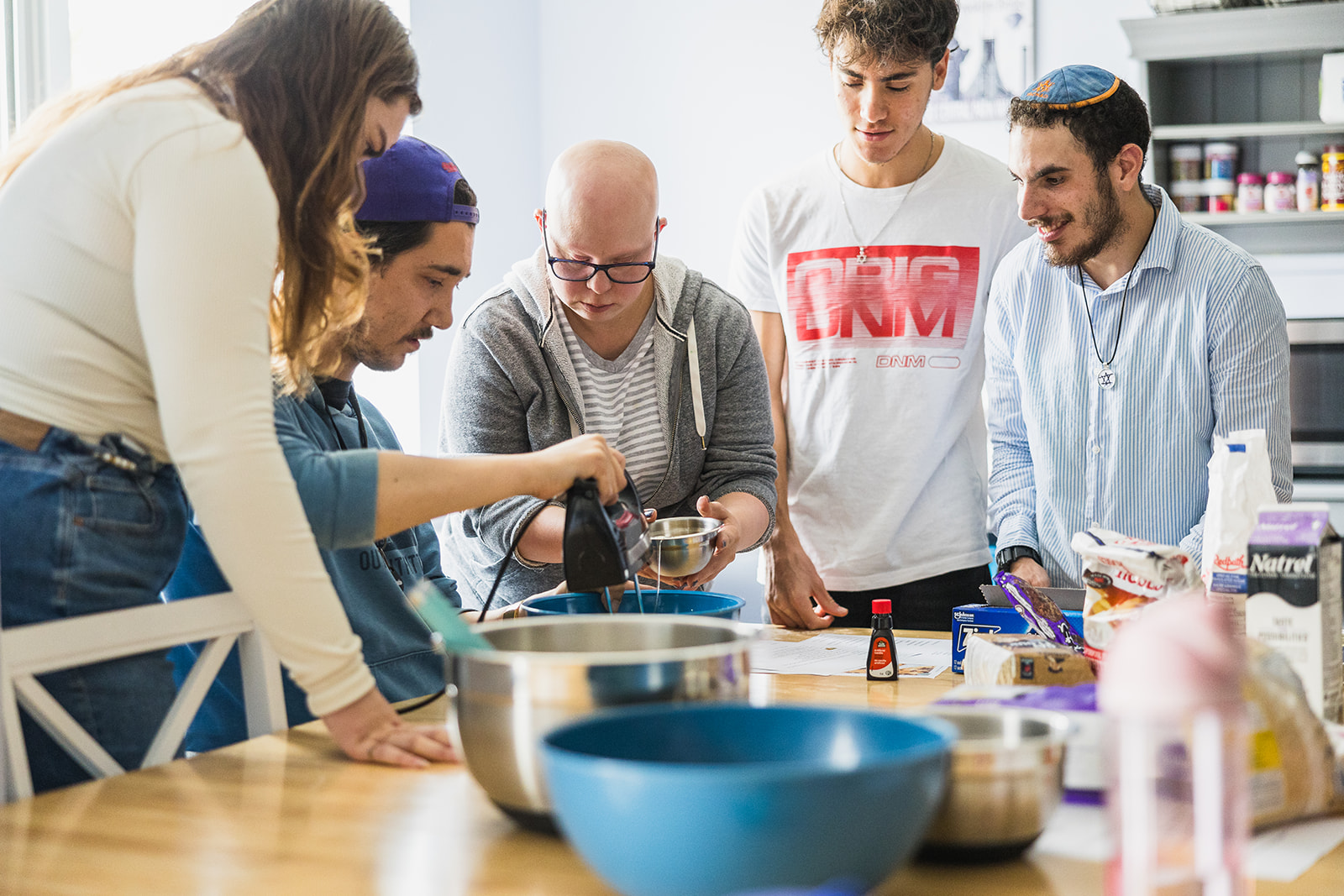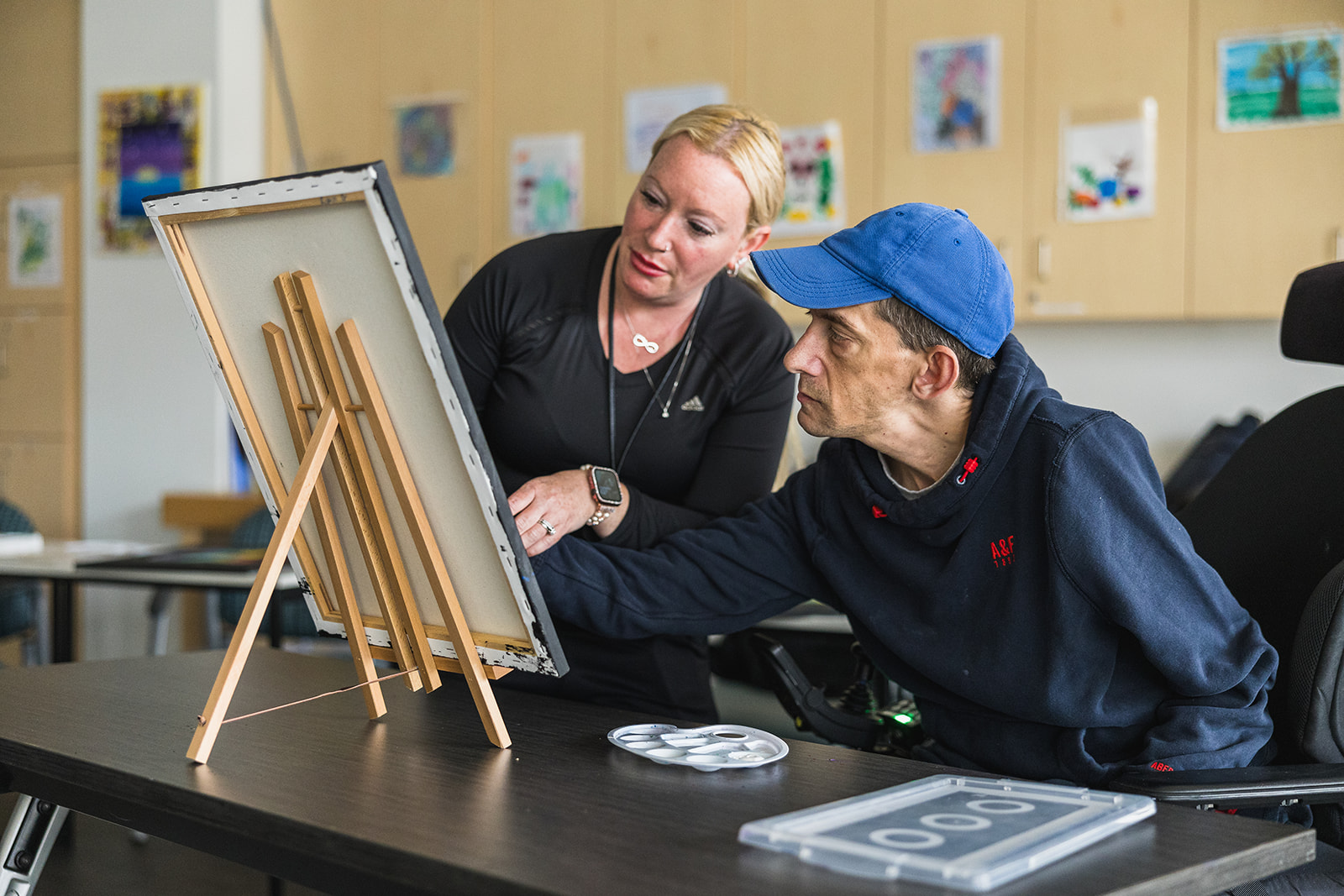Home
Empowering Individuals with Developmental Disabilities
Through person-centred support, community integration, and diverse programs, enabling them to lead fulfilling lives and actively engage in their communities.
Empowering Individuals with Developmental Disabilities
Through person-centred support, community integration, and diverse programs, enabling them to lead fulfilling lives and actively engage in their communities.
Empowering Individuals with Developmental Disabilities
Through person-centred support, community integration, and diverse programs, enabling them to lead fulfilling lives and actively engage in their communities.
Explore Our Programs & Services for Developmental Disabilities
Community Participation Programs
Meaningful programs & activities tailored to individuals.
Learn MoreCentred Content
Driving Change to Meet Growing Needs
Reena is committed to driving positive change and providing exceptional support for individuals with developmental disabilities and their families.
To meet the growing needs of the community, Reena is expanding its role in housing and bolstering its expertise in health services, while fostering meaningful social inclusion and engagement. Reena is also leading through operational excellence by investing in governance and management and enhancing government relations, advocacy, and awareness. With a focus on strengthening their approach to service and effecting positive change in the labor market, Reena is dedicated to achieving exceptional service standards and outcomes for individuals with developmental disabilities.
We are proud to support Reena’s newest residential project that will help address the urgent need for specialized housing in our community. This project will be life changing for people with disabilities and their families and we are honoured to be involved.
— The Frankfort Family
We would like to thank you, Alanna, Joey for your support and help during Andrew’s first year of employment. He benefits and enjoys the work. He keeps telling us how great was the shift and how he likes to be at work. You helped him not only with developing skills but with confidence, sense of belonging and we are extremely thankful for your help!!!
I like living at Reena because my apartment here allows me to be independent. I also feel safe and supported by staff and individuals at my building. It’s a great place to live.
— J.B
I am a parent. It’s my heartfelt thanks to all of you who contribute to this wonderful program. It is such a blessing to our family to be able to join. I am short of words to describe how grateful it is to know you guys. It means a lot to our family. thanks all. I am so happy of the email I received. I got the job since I contacted you, you helped me with my resume and scheduling my interview. I wish one day I can see you face to face with my small gift. Thank you again and have a fantastic day.
…Reena has been an amazing source of respite to our family. After a few years of COVID and our struggles to care for our 20-year-old son with complex disabilities, we were really drained with such a burden…
— A.M
…Almost cried when an individual who is painfully shy got up and danced with me with such a smile on his face – he barely looked up for months that I had worked with him but I played his favourite song and this was such a special moment.
— P.L
Latest News & Events
Stay informed! Explore Reena news for the latest updates and stories.
Day on the Hill 2024
See MoreReena’s Response to Recent Events in the Community
See MoreNew partnership helps Toronto caregivers to Relax, Recharge, Renew
See MoreReena and NTG-Canadian Consortium Receive Government Grant
See More$150,000 OTF Grant For Reena As It Celebrates Its 50th Anniversary
See More2023 Federal Budget – Analysis And Comments
See MoreA Dementia Strategy For Canada
See MoreAutonomous Living Project Leverages Cisco Technology To Help Those With Diverse Abilities Live Independently
See MoreBryan Keshen To Win The Oasis President’s Scholarship
See MoreCanada-Israel Inclusion Mission
See MoreCity Council Approves Reena’s Third Intentional Community Building
See MoreDay On The Hill 2023
See MoreIntentional Community Consortium Day On The Hill
See MoreIsrael 2023
See MoreIsrael 2019
See MoreProviding More Choice For Families In The Ontario Autism Program
See MoreReena And Chai-Tikvah Join Hands – Again
See MoreReena’s Ceo, Bryan Keshen, To Receive The Order Of Vaughan Award
See MoreReena’s Mental Health Symposium
See More11th Annual Striking For Reena Bowling Event
See MoreFrankfort Family Reena Residence – Update
See More2022 City Council Approved the Frankfort Family Reena Residence
See More2021 Community Meeting – Frankfurt Residence
See More2020 Provincial Budget – Analysis And Comments
See MoreReena Achieved Accreditation
See MoreRobbins Scores Home For Reena – Assisted By #16 Mitchell Marner
See MoreWays to promote and advocate for change

Donate
Your support helps us fund transformational housing projects and vital programs including Day, Respite and Employment.
Donate Now
Volunteer
We want to attract caring people to the Reena organization to continue to raise the bar for the services that we provide.
Join Our Team
Careers
With over 800 employees and an array of roles to choose from, now is the time to join Reena. Select a career that has the power to make a significant difference in someone’s life.
Apply NowPosts Slider
As a sector leader, Reena is proud to collaborate and lead exciting initiatives with many organizations.
